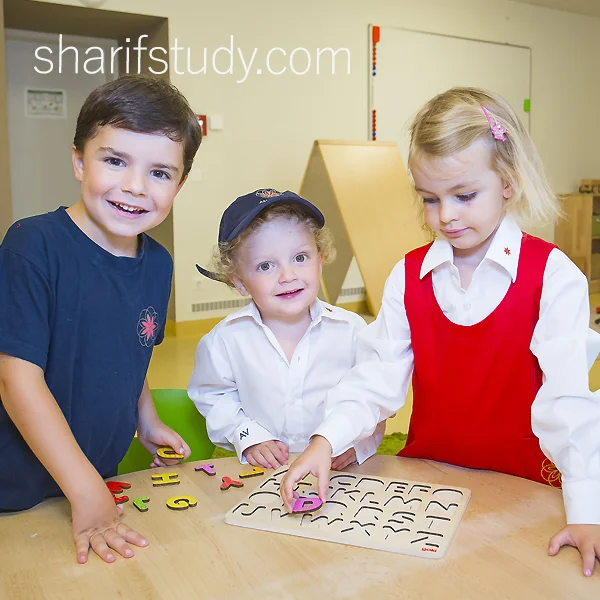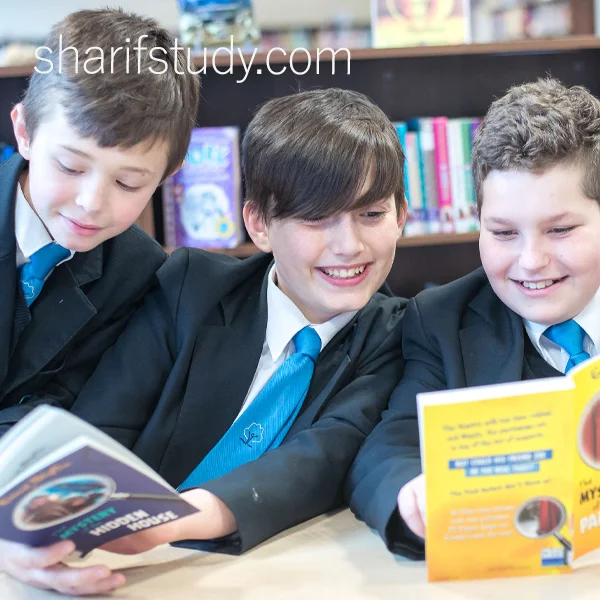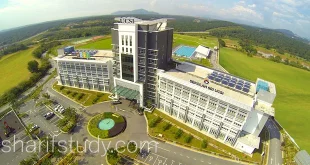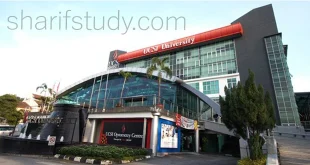UCSI International School Grades are the different levels of schooling that children go through as they grow up. Courses are the subjects that students study at each grade.
At UCSI International School, there are many grades and many different courses for students to take. In this guide, we’ll share more about these grades and courses, to help you understand what students learn at UCSI International Schools.
Kuala Lumpur Campus
Early Years Center (EY 1-2)
Children between the ages of 3 and 5 can have fun learning and playing throughout the day at the EYC At UCSI KL. The initial years of a child’s life offer a tremendous chance to cultivate their inherent curiosity and a sincere love of learning.
Early childhood educators with comprehensive qualifications and experience make up all EYC teachers. Each Early Years classroom has one skilled Teaching Assistant (TA) as well.
The International Early Years Curriculum (IEYC) is the perfect fit for our vision and mission to create future leaders and encourage global citizens via 21st Century Education. It also harmonizes with UCSI International School Kuala Lumpur’s emphasis on inquiry-based learning and teaching.
Through technology, learning toys, and a variety of other amazing resources, the IEYC enables our children to explore, express, and experiment, to play and perform, and to convey their knowledge and understanding.
With its emphasis on learning goals, personal goals, and global goals all bundled together in thematic learning modules, IEYC smoothly integrates into the International Primary Curriculum (IPC), used in our Primary School.
Primary School (Year 1-6)
Students in elementary school study the International Primary Curriculum and the Cambridge Primary Curriculum for English, Mathematics, and Science (IPC).
The IPC is a thorough, topical, and imaginative curriculum with a defined learning method and precise learning objectives for each unit. These learning objectives comprise:
Subject Objectives: The IPC subjects include music, physical education, history, geography, information & computing technology, and art. All of them aim to include not just knowledge but also crucial skills and concepts associated with the studied disciplines.
International Objectives: Each theme IPC unit has an international component with the intention of fostering a feeling of global awareness in the pupils.
Personal Goals: As part of their education, students concentrate on eight personal learning goals. Research, fortitude, morality, communication, consideration, cooperation, respect, and flexibility are some of these.
There are classes offered in stand-alone information technology, Mandarin, and Bahasa Malaysia in addition to Cambridge and the IPC.
The curriculum lays a solid basis for the next level of education by outlining specific learning objectives and emphasizing the acquisition of information and skills across all subject areas.
Secondary School (Year 7-11)
Cambridge Secondary (Years 7-9) and Cambridge IGCSE are the two stages of the secondary school curriculum (Year 10-11).
Years 7–9 are created to give a wide-ranging and well-balanced curriculum of:
- 1st Language: English
- 2nd Language: Mandarin/Spanish
- Mathematics
- Science
- ICT (coding and design)
- Humanities
- Art
- Physical Education
- Drama
- Bahasa Malaysia
- Music
Students in Years 10 and 11 will follow the two-year IGCSE test program, which includes the following subject choices:
- 1st Language: English
- 2nd Language: Mandarin/Spanish
- International Mathematics
- Additional Mathematics
- Coordinated Science
- Biology
- Physics
- Chemistry
- Computer Science
- Information & Communication Technology
- History
- Geography
- Business Studies
- Art & Design
- Physical Education
- Drama
- Music
English Immersion Program (EIP)
Being new to a different environment can be quite difficult, let alone studying school topics in a foreign language like English.
UCSI International Schools are prepared to assist overseas students in developing their English language skills and gaining more self-confidence so they may maximize their learning potential and succeed in a global environment to study in Malaysia.
In addition to focusing on language that corresponds to our IPC and Cambridge curricula, UCSI professional English immersion teachers will offer complete help in learning basic English skills (speaking, reading, writing, and listening).
Joining the EIP entails attending a school with an array of co-curricular activities, a state-of-the-art campus, and internationally recognized international curricula.
The weekly schedule will also include activities like swimming, music, design technology, and ICT, which together provide for a wholly comprehensive UCSI English experience.
Lower secondary students (aged 11–14) and upper primary children (aged 8–10) from all around the world are welcome to participate in this program!
Subang Jaya Campus
Early Years (Nursery & Reception)
The International Primary Curriculum (IPC) Early Years Program was written by early years specialists and offers the same combination of practical, rigorous support for teachers and exciting, age-appropriate work for children as the IPC main program.
The Early Years Program also assists children in becoming acquainted with the IPC learning process for each unit, thereby better preparing them for progression to the IPC main program.
The IPC Early Years units of work, which are based on the best early years practice, assist children in developing in an age-appropriate manner. The Early Years Program is available for students aged 4-6 and serves as a prelude to the Year 1 IPC units.
School hours: Monday-Friday 8:00-a.m. 2:30 p.m.
Primary Curriculum (Year 1-5)
Students in primary school follow the Cambridge Primary Curriculum in English, Mathematics, and Science, as well as the International Primary Curriculum (IPC).
The IPC is a comprehensive, thematic, and creative curriculum with a clear learning process and specific learning goals for each unit. These learning objectives include:
Subject Objectives: Information and computing technology, history, geography, music, physical education, and art are among the IPC subjects. All have the goal of covering not only knowledge, but also key skills and understanding of the subjects studied.
International Goals: Each thematic IPC unit includes an international component with the goal of instilling in students a sense of international mindedness.
Personal Learning Goals: As part of their learning, students focus on eight personal learning goals. Inquiry, resilience, morality, communication, thoughtfulness, cooperation, respect, and adaptability are some of them.
The curriculum establishes clear learning objectives and focuses on developing knowledge and skills in all subjects, laying the groundwork for the next stage of education.
School hours:
Monday to Friday: 7.45am – 3.00pm
Tuesday, Wednesday, Thursday (CCA): 3.00pm – 4.00pm
School hours:
Lower Secondary (Year 6-8)
Monday to Friday: 7.45am – 3.30pm
Tuesday, Wednesday, Thursday (CCA): 3.30pm – 4.30pm
Upper Secondary (Year 9-10)
Monday to Friday: 7.45am – 3.30pm
Tuesday, Wednesday, Thursday (CCA): 3.30pm – 4.30pm
Springhill Campus
Primary Years Program (PYP) – Age 3-11
The IB Primary Years Program (PYP) is intended for students aged three to eleven. It focuses on the development of the whole child as an inquirer, both in and out of the classroom.
It is a framework guided by six global interdisciplinary themes that are explored using knowledge and skills derived from six subject areas, as well as interdisciplinary skills, with a strong emphasis on inquiry.
The PYP is adaptable enough to meet the requirements of most national or local curricula, and it provides the best preparation for students to participate in the IB Middle Years Program.
The IB Primary Years Program (PYP) addresses kids’ intellectual, social, and emotional well-being, encourages kids to acquire independence and accept responsibility for their own learning. Helps pupils create personal ideals as a foundation for developing and flourishing international-mindedness.
Subjects
The six subject areas identified in the IB Primary Years Program are as follows:
- Language
- Mathematics
- Science
- Social studies
- Arts
- Personal, social and physical education
The six transdisciplinary themes are the most significant and distinguishing element of the IB Primary Years Program. These themes allow IB World Schools to incorporate local and global issues into the curriculum and effectively allow students to “step up” beyond the confines of learning within subject areas.
These themes are Who we are, Where we are in place and time, How we express ourselves, How the world works, How we organize ourselves, and Sharing the planet.
These transdisciplinary subjects assist teachers in developing a program of inquiries-investigations into major ideas identified by schools and needing a high level of student involvement. These inquiries are extensive, in-depth, and typically span many weeks.
Students understand the relevance of these ideas and engage with them in an engaging and challenging way because they relate to the world outside of school.
Students who study in this manner begin to focus on their roles and responsibilities as learners and become more active participants in their education.
All students will realize that a unit of inquiry requires them to conduct in-depth research on an important concept, and that the instructor will collect evidence of how well they grasp that concept.
They will expect to be able to work in a number of ways, both alone and in groups, to maximize their learning opportunities.
School hours:
The DP Core
The Extended Essay (EE): requires students to conduct independent research on a topic related to one of the DP subjects they are studying. The extended essay option in world studies allows students to focus on a topic of global significance and study it through the lens of at least two DP disciplines.
Theory of Knowledge (ToK): creates a unified approach to learning across academic disciplines. Students in this critical thinking course investigate the nature of knowing and develop their understanding of knowledge as a human production.
Creativity, Activity, and Service (CAS): Throughout the Diploma Programme, students participate in a variety of activities in addition to their academic studies. Creativity inspires pupils to participate in the arts and think creatively.
Physical activity is used to promote a healthy lifestyle. Community service provides a medium for fresh learning with academic relevance. Through experiential learning, the three strands of CAS boost students’ personal and interpersonal growth and facilitate journeys of self-discovery.
The DP Curriculum
Students enrolled in the IB Diploma Program must select one topic from each of the five groups (1–5) to ensure depth of knowledge and understanding in their best language, additional language(s), social sciences, experimental sciences, and mathematics. Students may select one of the arts subjects from group 6 or a second subject from groups 1–5.
Three to four subjects are taken at the higher level (240 teaching hours), while the remaining subjects are taken at the regular level (150 teaching hours). Students have the option of studying and taking exams in English, French, or Spanish.
The Diploma Program includes three basic parts that widen students’ educational experiences and challenge them to use their knowledge and abilities, in addition to disciplinary and interdisciplinary studies.
School Hours
Monday–Thursday: 8.00am – 4.00pm (CCA: 3.00pm-4.00pm), Friday: 8.00pm – 3.00pm
SharifStudy Group represents more than seventy universities, colleges, international schools and language schools.
 SharifStudy Best way to Study in Malaysia
SharifStudy Best way to Study in Malaysia











